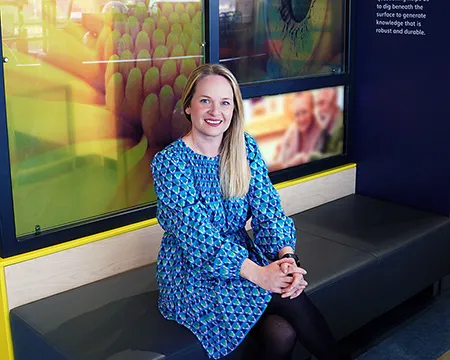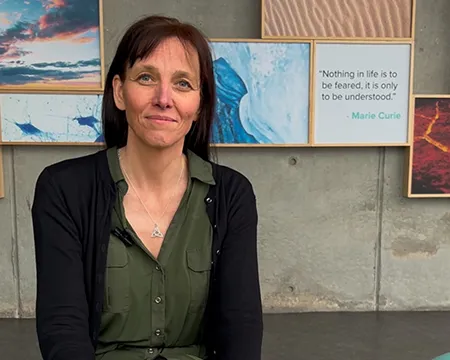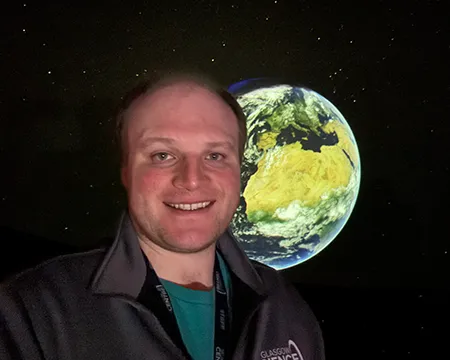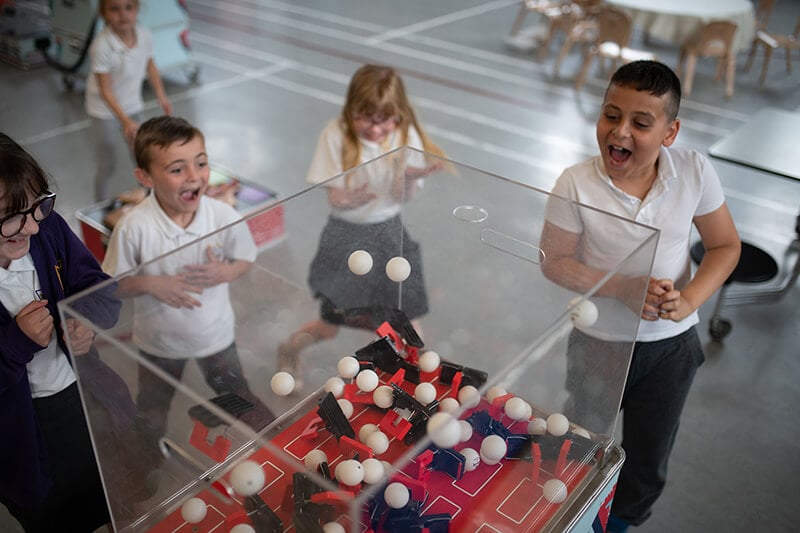Tales for Tomorrow: Storytelling and the Climate Crisis

There’s a reason why we don’t go into the woods at night. We are told stories, from when we are very young, about the dangers that lurk in the forests. There may be animals, witches or even wolves in nightgowns and bonnets posing as your own grandmother. These stories help us figure out the rules of our world from an early age. They teach us to tell the truth (The Boy Who Cried Wolf), help our friends (Little Red Hen), and to take a hard look at the facts before getting carried away (Chicken Licken).
Storytelling has been used a means of communicating information about the world around us as far back as the Lascaux cave drawings. There is a scientific reason why our brains are drawn to stories as a method of learning, and it has a lot to do with memory.
As human beings we have three different types of memory: Sensory Memory, Short Term Memory and Long Term Memory. Our brains use them as a means of filtering important and unimportant information.
Sensory Memory, for example, helps us process the constant stream of information we get from our senses. The background noise of the street outside, the feeling of the ground beneath your feet, the lingering taste of coffee in your mouth. These are all processed through our Sensory Memory which promptly throws it all out. If we committed these experiences to our long term memory we would be overwhelmed with information.
Our Short Term Memory is what categorises everything that has happened in the last few minutes. It can hold roughly seven things in your head at any given time. When you open the fridge door and think “we are running out of milk” that memory will only last a few minutes to a several hours at most. Transferring that information from Short Term Memory to Long Term Memory is the one thing standing between you and dry cereal. This is called memory consolidation.
Long Term Memory is probably closest to what we think of when we think about memory outside the context of psychology. Our memories of childhood, ourselves, and Lisbon being the capital of Portugal are all long term memories. This is information that our brain has identified as important and relevant.
However, oftentimes we need to convince our brains that certain facts and figures are incredibly important and incredibly relevant when it might think otherwise. We need to find a quick and effective way to consolidate new, long term memories. This is where storytelling comes in.
If I asked you to list off all the colours of the rainbow, there’s a high probability that you might start singing to yourself. Red and yellow and pink and green. If you are a bit more scientifically minded and know that is neither the order nor colours of the rainbow you might recite “ROYGBIV” or “Richard Of York Gave Battle In Vain” to remember red, orange, yellow, green, blue, indigo and violet.
By adding a narrative to new information, we give it context and relevance which improves the chances of ‘learning’ it or storing it in our long term memory.
Storytelling is a powerful tool for conveying and learning new information. Even in the world of science we can’t help but become storytellers. The apple that fell on Newton’s head may be more famous than the equation that explains why.
This is especially crucial for when we talk about climate change. We know we need to move forward from reliance on fossil fuels but listing off facts and figures about the outcomes of a warming planet does not help us identify that information as valuable and relevant when we are trying to go about our daily lives.
Dan Fagin, the head of the Science, Health and Environmental Reporting programme at NYU identifies the deficit when we try and talk about climate change in an interview with Foresight. “Social scientists define it as the deficit model: when you think that people are like empty vessels and, if you just fill them up with information, they will believe you.”
Without being able to make the information we are learning about climate change relevant to our lives it is difficult to express the urgent need to act in order to prevent irreversible change. Stories help our brains identify information as important and relevant. They stick in our minds, being more easily consolidated into long term memories, and help us to engage with empathy.
Whilst climate change can feel like a recent issue, climate storytellers are nothing new. Scotland’s long oral tradition has plenty to choose from when looking for tales about our connection to nature or the importance of biodiversity and conservationism.
This weekend, Glasgow Science Centre has curated a selection of folk tales that inspire us when considering Our Green Futures: Thomas the Thatcher which will be released Saturday March 20th along with Saving the Forest, and The Fuath which will be available on the Our World Our Impact Hub. Not only do these stories remind us of our connection to the natural world, they help provide a context to move forward. They remind us to make spaces for nature, listen to voices when they speak up (no matter how small), and to work together to a greener, fairer future.






